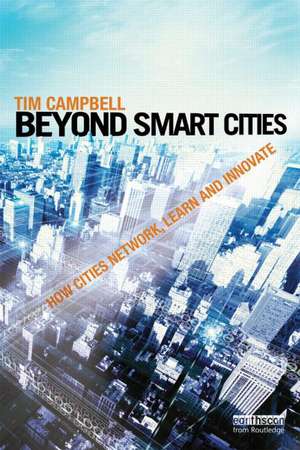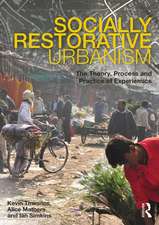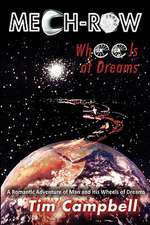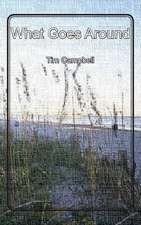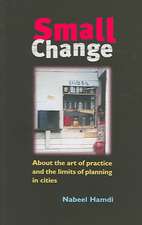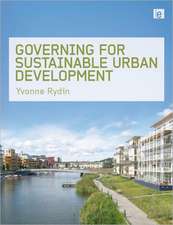Beyond Smart Cities: How Cities Network, Learn and Innovate
Autor Tim Campbellen Limba Engleză Paperback – 20 ian 2012
This book draws on quantitative and qualitative data with concrete case studies to show how networks already operating in cities are used to foster and strengthen connections in order to achieve breakthroughs in learning and innovation. Going beyond smart cities means understanding how cities construct, convert and manipulate relationships that grow in urban environments. Cities discussed in this book – Amman, Barcelona, Bilbao, Charlotte,Curitiba, Juarez, Portland, Seattle and Turin – illuminate a blind spot in the literature. Each of these cities has achieved important transformations, and learning has played a key role, one that has been largely ignored in academic circles and practice concerning competitiveness and innovation.
Preț: 328.88 lei
Preț vechi: 423.89 lei
-22% Nou
Puncte Express: 493
Preț estimativ în valută:
62.94€ • 65.47$ • 51.96£
62.94€ • 65.47$ • 51.96£
Carte tipărită la comandă
Livrare economică 14-28 aprilie
Preluare comenzi: 021 569.72.76
Specificații
ISBN-13: 9781849714266
ISBN-10: 1849714266
Pagini: 256
Ilustrații: 24 black & white tables, 15 colour line drawings
Dimensiuni: 156 x 234 x 13 mm
Greutate: 0.4 kg
Ediția:1
Editura: Taylor & Francis
Colecția Routledge
Locul publicării:Oxford, United Kingdom
ISBN-10: 1849714266
Pagini: 256
Ilustrații: 24 black & white tables, 15 colour line drawings
Dimensiuni: 156 x 234 x 13 mm
Greutate: 0.4 kg
Ediția:1
Editura: Taylor & Francis
Colecția Routledge
Locul publicării:Oxford, United Kingdom
Public țintă
Postgraduate, Professional, and Professional Practice & DevelopmentCuprins
1. Overview 2. The Slow Emergence of Learning Cities in an Urbanizing World 3. Cities as Collective Learners: What Do We Know? 4. A Gamut of Learning Types 5. Light on a Shadow Economy: City Learning in 53 Cities 6. Informal Learners – Turin, Portland and Charlotte 7. Technical Learning: Curitiba and City Think Tanks 8. Corporate Styles: Bilbao, Seattle and Others 9. Clouds of Trust in Style 10. Taking Stock: Why Some Cities Learn and Others Do Not 11. Turning the Learning World Upside Down – Pathways Forward in Policy and Research
Notă biografică
Tim Campbell has worked for more than 35 years in urban development with experience in scores of countries and hundreds of cities in Latin America, South and East Asia, Eastern Europe, and Africa. His areas of expertise include strategic urban planning, city development strategies, decentralization, urban policy, and social and poverty impact of urban development. He is chairman of the Urban Age Institute, which fosters leadership and innovation between and among cities in areas of strategic urban planning, urban policy and management, sustainable environmental planning, and poverty reduction. Campbell retired from the World Bank in December 2005 after more than 17 years working in various capacities in the urban sector. Before joining the Bank, he worked for over 13 years as a private consultant and university professor. His consulting clients included private sector firms, governments, and international organizations. He taught at Stanford University and the University of California at Berkeley. He lived in rural and small town Costa Rica for two years as a Peace Corps Volunteer.
Recenzii
"This book draws on quantitative and qualitative data with concrete case studies to show how networks already operating in cities are used to foster and strengthen connections in order to achieve breakthroughs in learning and innovation" – Soziale Technik
Descriere
This book draws on quantitative and qualitative data with concrete case studies to show how networks already operating in cities are used to foster and strengthen connections in order to achieve breakthroughs in learning and innovation.
